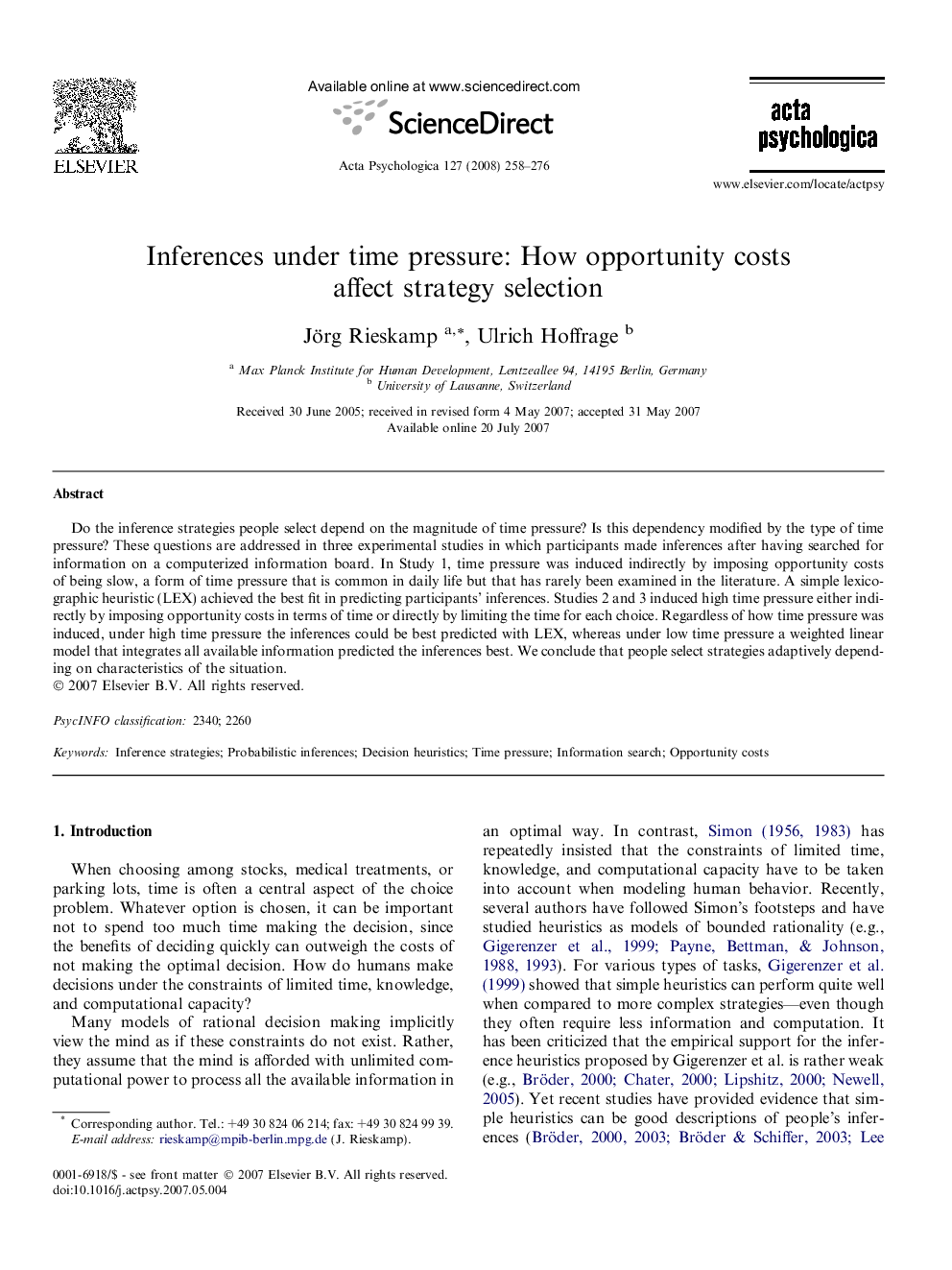| Article ID | Journal | Published Year | Pages | File Type |
|---|---|---|---|---|
| 920495 | Acta Psychologica | 2008 | 19 Pages |
Do the inference strategies people select depend on the magnitude of time pressure? Is this dependency modified by the type of time pressure? These questions are addressed in three experimental studies in which participants made inferences after having searched for information on a computerized information board. In Study 1, time pressure was induced indirectly by imposing opportunity costs of being slow, a form of time pressure that is common in daily life but that has rarely been examined in the literature. A simple lexicographic heuristic (LEX) achieved the best fit in predicting participants’ inferences. Studies 2 and 3 induced high time pressure either indirectly by imposing opportunity costs in terms of time or directly by limiting the time for each choice. Regardless of how time pressure was induced, under high time pressure the inferences could be best predicted with LEX, whereas under low time pressure a weighted linear model that integrates all available information predicted the inferences best. We conclude that people select strategies adaptively depending on characteristics of the situation.
